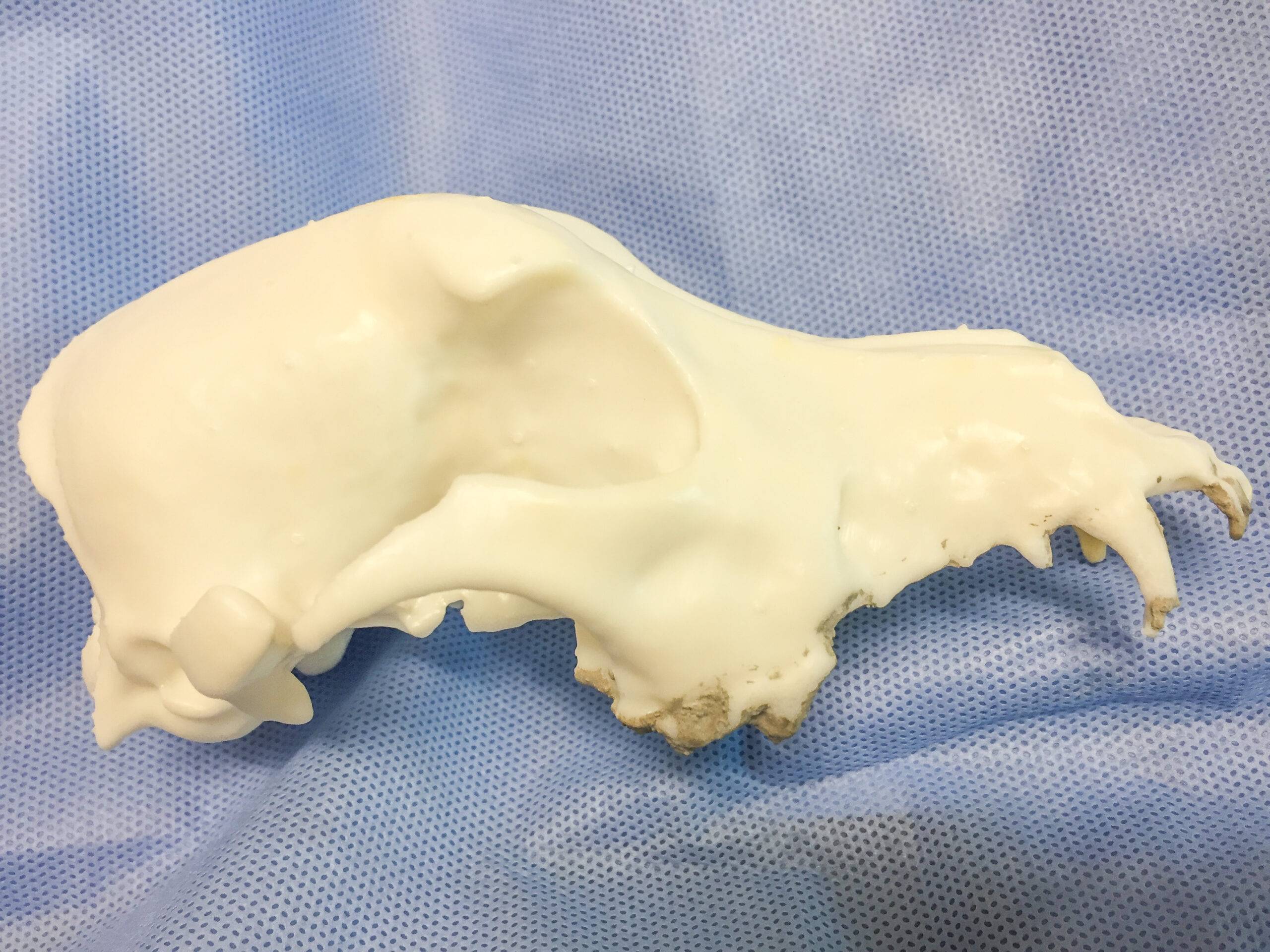Lincoln Memorial University-College of Veterinary Medicine (LMU-CVM) is using 3D printing technology to create models that students will use to practice surgical skills. The technology will be incorporated into an innovations elective course that will be offered in January 2019 to students.
In the summer of 2018, LMU-CVM acquired two 3D printers, both a resin-based 3D printer and a fused deposition modeling (FDM) printer. The printers allow for multiple types of materials to be used in the development process. For example, soft resins mimic tissues while bone colored resins can be used for anatomy. This greatly expands the number of models that LMU is able to develop.
Dr. Jamie Perkins, clinical skills veterinarian for the Center for Innovation in Veterinary Education and Technology (CIVET) at LMU-CVM is working on incorporating the use of these 3D printers within the LMU-CVM curriculum. Numerous veterinary colleges around the country are using this type of technology in a variety of ways including in-house production of supplies and equipment, pre-operative and surgical planning, research on prosthetics and bioprinting for tissue and organ production and creation of educational specimens for teaching.
“The potential to replicate injuries or deformities in animals with 3D printing capabilities is unparalleled,” said Perkins.
A 3D representation of what abnormal pathology looks like in a cat.
3D printing has been around since the mid-1980s. Originally this type of technology was used by large companies and for military prototypes. As the technology has advanced it has become more affordable and available to the general public. 3D printing is now being used in multiple ways within the medical field and veterinary medicine is no exception.
The mechanics of working with 3D printers involves an understanding of creating the 3D object in computer aided design (CAD) software and exporting in file formats compatible with 3D printers. Some of the software being utilized relies on converted CT scans from patients. The 3D printer then creates layers of material until it has completed the 3D form.
There are many “plug and play” 3D printers on the market, however many of the printers utilized in medicine that create medical grade prints, require a certain degree of education on the types, process and what to do with the prints once they have been created.
“Our students will be entering practices such as specialty surgical centers where they will use 3D printers in their surgical planning,” said LMU-CVM Vice President and Dean Jason Johnson. “Our goal is to prepare competent graduates that are ready to hit the ground running on day one after graduation. Knowledge of this technology will give our students a competitive edge as they enter the workforce.”
Lincoln Memorial University (LMU) is a values-based learning community dedicated to providing educational experiences in the liberal arts and professional studies. The LMU-College of Veterinary Medicine is located on LMU’s main campus in Harrogate, Tennessee, with additional academic facilities in nearby Lee County, Virginia. LMU-CVM is an integral part of the University’s medical programs and provides real-world, community-based education in a collaborative learning environment.


